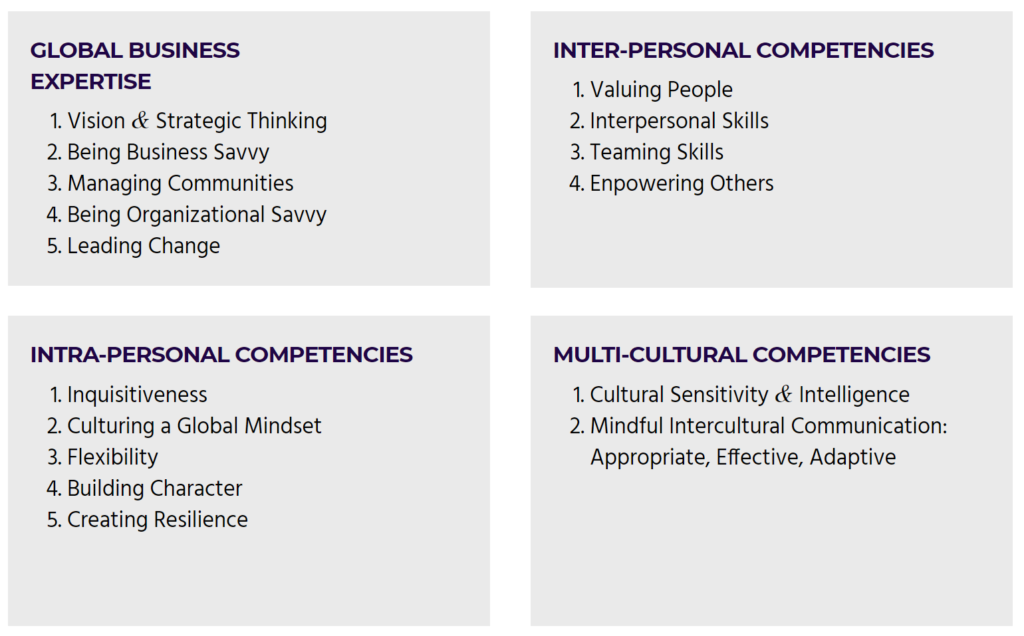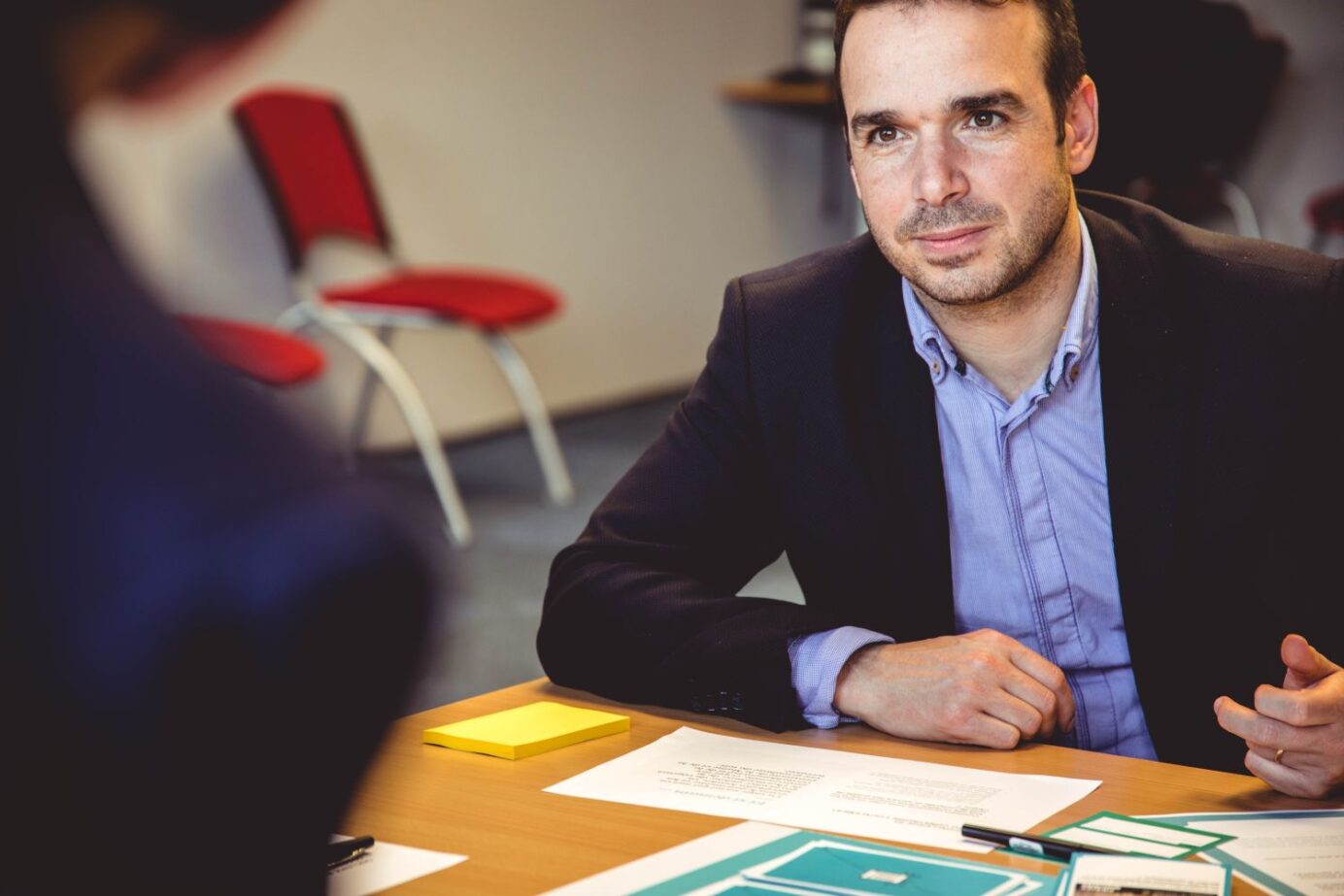Not everybody can be a successful global leader. What works for a domestic leader in a natural environment may crumble abroad. Yet, with the right programs and tools, aspiring global leaders can be trained to pick up the key qualities needed to be effective in a foreign culture or environment.
Business owners or CEOs aiming to train global leaders should keep this in mind when selecting viable candidates to participate in their chosen Global Leadership Development (GLD) program.
But how do you pick the right people? Anybody who runs a business knows how important it is to pick the right people for the job, any job. Selecting the wrong ones means wasting time and money — especially for something as important as developing your company’s global leaders.
In order to be sure, you’ll need to help the GLD program team to evaluate your employee’s current abilities based on your knowledge.
In this guide, we’ll explain exactly how you can predetermine and evaluate your current staff’s abilities to ensure you’re sending the best people through your GLD program and beyond.
Contents
What Makes a Good Global Leader?
Before you can assess how to evaluate your team members’ abilities, you need to understand the gold standard for what makes up a successful global leader.
There isn’t one true north study that describes what makes a global leader successful. However, there are many agreed-upon characteristics and traits that effective global leaders must possess.
Global leaders are open-minded, master negotiators, incredibly inclusive, effective communicators, collaborative, and so much more. A global leader must have certain behaviors, traits, skills, and knowledge that make them not only capable of, but excel at, handling difficult and unfamiliar situations beyond borders and cultures.
Beyond these general traits, they need to possess a set of competencies that give them the edge they need to succeed.
The European Academy for Executive Education (eurac) GLD program uses four categories and 16 dimensions that make up the recipe for success:

These competencies represent all of the traits that a good global leader needs to be prosperous. Yet, it’s not always necessary for a global leader to embody all 16 of these competencies at once to be effective. Based on your company’s needs, your global leaders may only need to be exceptionally skilled in half of them. We’ll discuss this in more detail below.
The goal is to train your leaders to become proficient with your must-have competencies to ensure they are prepared for the tough challenges ahead.
Why Is It Important to Pre-assess Potential Leaders’ Abilities for a GLD Program?
As referenced above, not all leaders will succeed in the global realm. One of the key facets of having success abroad is possessing a “global mindset”.
Global mindset is the ability to leverage innate cultural knowledge and absorb foreign cultural norms in order to adjust and react effectively, appropriately, and flexibly in unfamiliar and difficult situations.
The Global Journal of Management and Business Research conducted a study in 2017 that compared the effectiveness of domestic vs. global leaders in the electronics retail industry. The study found that a “global mindset” is an additional attribute of global leaders to work effectively in diversified and cross-cultural environments, therefore global leaders are more suitable in dealing with issues of complexity, connectedness, and context.”
It’s important to pre-assess your aspiring global leaders to discover if they have the ability to develop this mindset with training. If they don’t, you may end up wasting time and money by sending the wrong candidates through your GLD program.

How to Pick the Right Global Leaders for Your GLD Program
If you aren’t sure how to evaluate your potential global leaders to see if they fit the bill, you’re not alone. Without a strategy, you may end up feeling like you’re sifting through candidates aimlessly.
Before you do any employee pre-assessments, you need to start with some business evaluation. Only once you’ve clearly defined your needs, should you get started on picking viable candidates.
Let’s dive in.
Define your GLD program goals
The first and most important step in choosing the right global leaders is to set the goals you want them to achieve.
If you don’t set clear expectations, you’ll never know the types of leaders you need to employ to achieve such goals. Setting clear goals is the foundation of finding the right global leaders for your desired outcomes.
Moreover, GLD programs are designed to suit your specific needs. There is no successful one-size-fits-all program; the best ones tailor their training to suit your unique ambitions.
You can use common goal types, like SMART or OKR, to define, set and measure these goals. To learn more about these strategies, read our guide on how to set and measure goals for a global leadership development program.
Define competencies based on your goals
The next step is to sit with the GLD program team to define which competencies your global leaders must have in order to achieve your predefined goals.
Once complete, you can then evaluate your aspiring global leader’s abilities based on these set competencies and goals.
For example, a company in the professional services consulting space may have the desire to open new locations abroad to expand its global market reach. Perhaps they’ve had tons of success at home, are hitting their sales and profits targets, and are eager to spread their wings.
Because they are profitable and successful, their initial goals for their new location may be to focus more on engraining themselves into a new community and less on boosting sales. Therefore, their goals could be:
- Making valuable connections with local businesses;
- Engraining themselves into the local community, and;
- Creating an inclusive office environment.
Based on these goals, their top required competencies out of the above-mentioned 16 could be the following eight:
- Valuing People
- Cultural Sensitivity & Intelligence
- Mindful Intercultural Communication: Appropriate, Effective, Adaptive
- Culturing a Global Mindset
- Teaming skills
- Vision & Strategic Thinking
- Managing Communities
- Being Organizationally Savvy
If the aspiring global leader possesses the traits that sync with your goals, they will have a much better chance of achieving your vision.
Global Competencies Inventory (GCI)
To help you in defining the right competencies to fit your goals, you can make use of the so-called Global Competencies Inventory (GCI), developed by the Kozai Group.
According to GlobeSmart, the Global Competencies Inventory “measures leadership competencies of managers and global leaders in areas essential to interacting and working effectively with people from different cultures.”
The GCI examines three major areas:
- Perception Management
- Relationship Management
- Self-Management
The GCI is a comprehensive, statistically valid and reliable self-assessment.
Technical personnel, middle and top management personnel in international corporations, as well as faculty and graduate students in university programs, have used the GCI in the following ways:
- Executive coaching for personal/professional development.
- Selection & promotion criteria for positions with global responsibilities.
- Pre-& post- measurements for changes in intercultural competencies.
- Cross-cultural & diversity courses to increase awareness & self-analysis for improvement.
At eurac, we absolutely recommend using the GCI to help define the necessary competencies of the people you choose to participate in your global leadership development program.
Set up a questionnaire
With goals and competencies defined and set, you can begin assessing your candidates.
A great place to start is by creating a questionnaire to send to your employees. You could tailor each question to a use case your aspiring leaders may face in their new role.
By asking questions based on potential real-life scenarios, you can begin to evaluate if their answers are in line with the list of competencies your leaders must possess. Then you can take it a step further and compare those competencies to your defined goals.
Going along with the professional services consulting example, their questions could focus on community and team-building scenarios.
For example, the company may ask:
“How would you motivate and inspire a team of people from various backgrounds, many of which differ from yours, to work well together?”
Or maybe: “How would you prepare for a deployment in India, working with a mixed team with Indian and Chinese backgrounds?”
If the aspiring leader’s answer shows they possess the necessary interpersonal and multi-cultural competencies, they may be a good fit for the program.
Conduct interviews
Together with the GLD program team, you are ready to conduct interviews to assess and evaluate where your chosen candidates stand in relation to your pre-defined goals and competencies.
Use the interview to expand on the questionnaire. You can ask similar questions, but ask the candidate to provide more detail in their answers.
While it’s important that your candidates embody natural strength in your required competencies, they will most certainly be stronger in some areas than others. The purpose of the interview is to ask pointed questions to help to uncover their varied skillsets.
By getting to the core of your aspiring leader’s potential, you can evaluate the gaps in their strengths. Once identified, the GLD program team can tailor their training to fill those gaps.

Finding the Best Candidates for Your GLD Program with eurac
Pre-assessing and evaluating potential global leaders is the best way to find the right employees for your GLD program.
Skipping this step is akin to hiring a new employee without conducting an interview. While everything may look good on paper, talking with them ensures they are a cultural and professional fit.
Understanding your aspiring leader’s core strengths, choosing the ones that fit your pre-defined competencies and goals, and identifying gaps in skill equips your GLD program team to create the best program for you.
If you’d appreciate some support in setting up a global leadership development program in your own company or organization, check out how eurac can support you here. And if you’re interested in learning more about global leadership in general, sign up for our weekly newsletter here:


